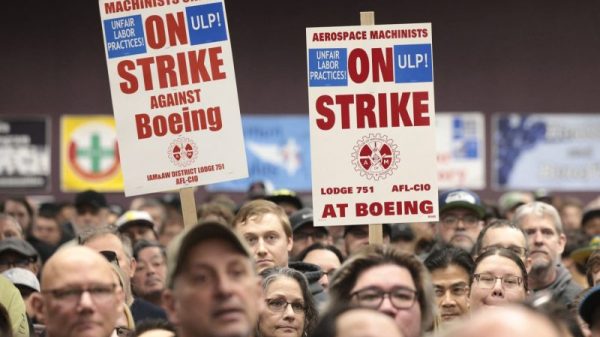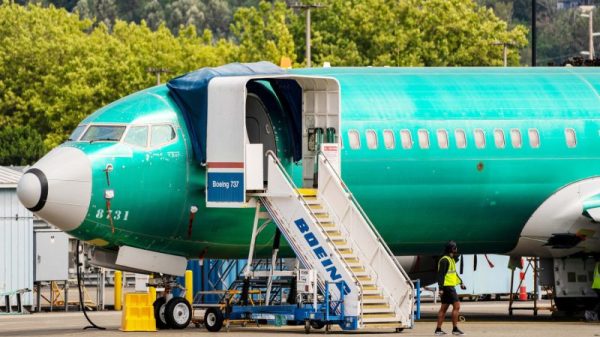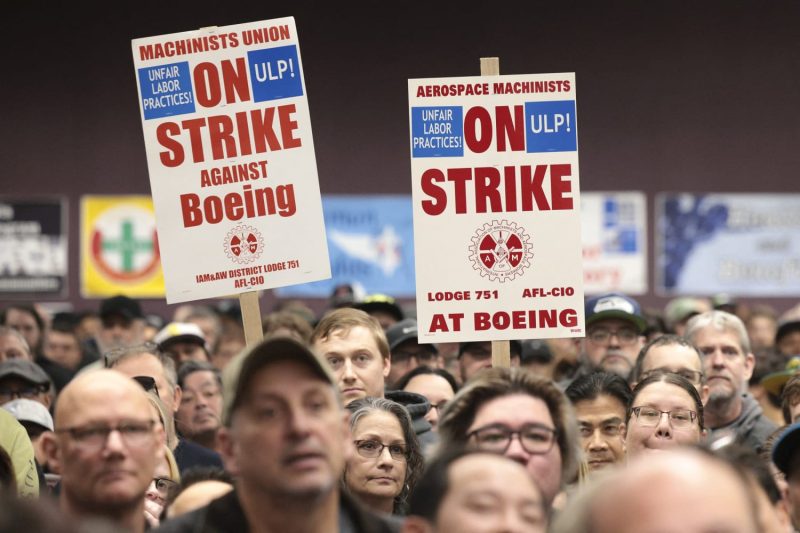Boeing machinists, an integral part of the world-renowned aerospace giant, recently rejected a newly proposed labor contract, which has resulted in a prolonged strike and halted the airplane manufacturing process. The stiff opposition was a strong message of dissatisfaction concerning the proposed terms, which have roused concerns about job security, wages, and benefits among Boeing’s diverse workforce.
Boeing, a titan in the aviation manufacturing sector, has had ongoing disputes with its employees, specifically, the machinists. The complexity of these strikes rests on prolonged contentious relations between the aerospace giant and machinist’s union, International Association of Machinists and Aerospace Workers (IAM). The recent strike, which stems from deep dissatisfaction with the new labor contract, yet again underscores ongoing conflict, widening the schism in labor relations.
The proposed labor contract sparked an outcry among the machinists, prompting them to reject it outright. Central to the machinists’ objections is the fear of dwindling job security. The deal’s terms reportedly offered the potential for reassignments that would displace current workers and may shift jobs abroad. This implication led to a vehement rejection from the machinists, a group pivotal to Boeing’s manufacturing operations. Unable to reconcile with the possibility of shaky job tenure, the workers chose to take the fight head-on, sparking the ongoing strike.
Besides job security, complaints about stagnating wages formed another significant issue. Despite being employed by a leading global corporation, machinists believe that the company does not adequately compensate their labor. They argue for a wage increase commensurate to their skills, expertise, and critical role in building aircraft. Coupled with the long work hours and physically demanding tasks inherent to their profession, they feel the new contract lacks adequate compensation for their dedicated service.
Benefit provisions in the proposed contract also came under criticism. The machinists reportedly disagreed with not just wage stipulations but also the health and pension benefits stipulated within the contract. As the employees work in a high-risk environment, health benefits are not mere perks but necessities. Furthermore, given the longevity of service many of these machinists offer, reliable pension plans are crucial for their future financial security. As such, their choice to reject the contract is firmly rooted in the perceived lack of adequate health and pension provisions.
The rejection of the labor contract and the resulting strike have significant repercussions. They have not only halted the production of airplanes, causing potential delays in deliveries, but have also cast a shadow on Boeing’s relations with its workforce, particularly the machinists. Predictably, the standoff led to costly disruptions, given Boeing’s critical role in global aviation and its sizable clientele who rely on timely aircraft delivery.
Dialogue is key in resolving this impasse. Boeing and its machinists must establish a communicative forum to air and address grievances. To their credit, both parties show willingness to negotiate. Hopefully, this willingness will soon pave the way to a labor contract that respects machinists’ expectations and rights, while also ensuring Boeing’s continued operation and growth.
The Boeing machinists’ rejection of the labor contract and subsequent strike has put a spotlight on the depth of frustration the workforce feels. Their cause is based on genuine concerns over job security, fair compensation, and benefits. Boeing, in response, must take these concerns into account in future iterations of their contracts. This event serves as a potent reminder that functional labor relations are fundamental to successful organization operations and that open dialogue and consensus-building are crucial in ensuring workers’ rights while also safeguarding the company’s bottom line.



































